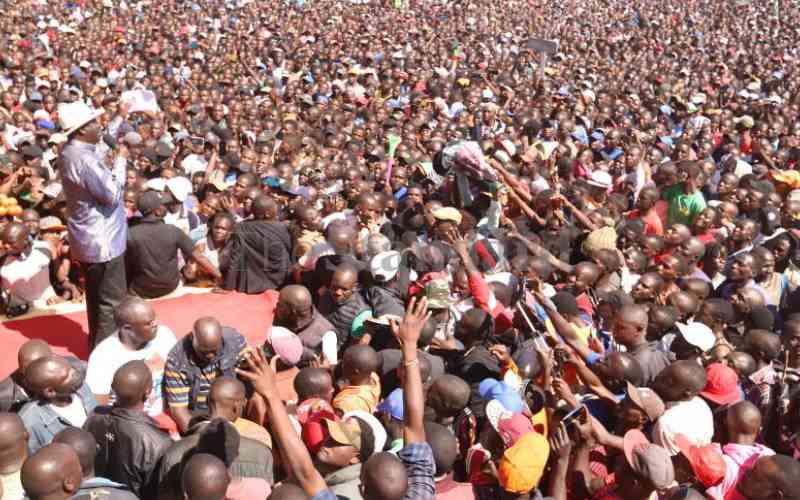×
The Standard e-Paper
Home To Bold Columnists

For decades, former Prime Minister Raila Odinga has been the doyen of Kenyan opposition politics.
The bane of authoritarian regimes, he is venerated as a champion of the underdog. He has put his near-cultic following to good use, launching successive bids for the presidency. All his five attempts have come a cropper.